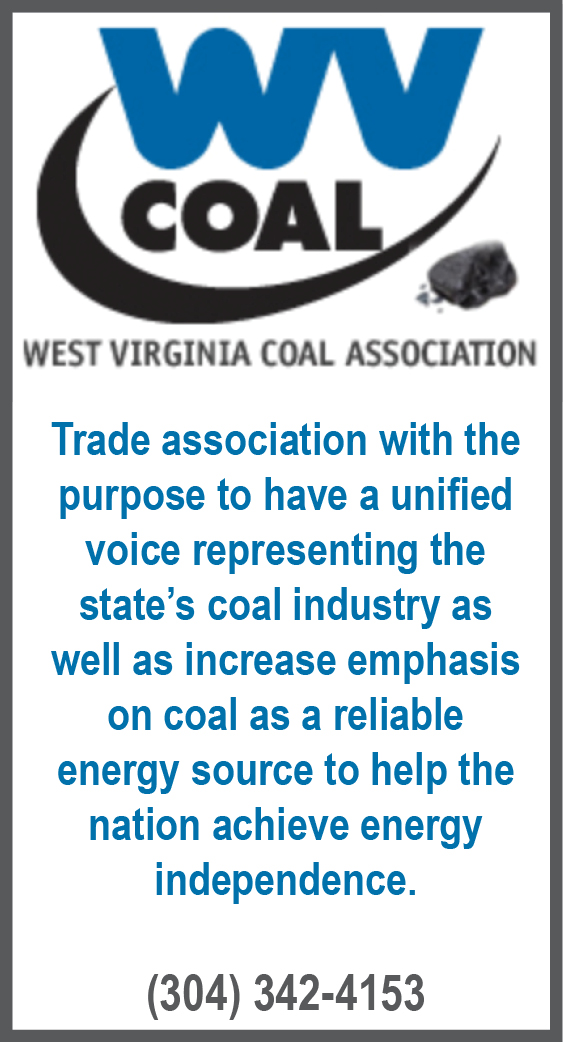PSC Approves Keeping Three W.Va. Coal Plants Operating Through 2040
West Virginia state utility regulators have approved environmental compliance upgrades to keep three American Electric Power-controlled in-state coal-fired power plants federally compliant and operating through 2040.
The West Virginia Public Service Commission on Wednesday approved a request by Appalachian Power and Wheeling Power to implement and recover costs for the upgrades at the John Amos, Mountaineer and Mitchell coal-fired generating plants in Putnam, Mason and Marshall counties, respectively.
The commission also approved a surcharge for the companies to recover construction costs that will result in an increase of about 38 cents on monthly bills for the average residential customer using 1,000 kilowatts a month starting Sept. 1.
The commission’s order comes despite a ruling from Kentucky state utility regulators last month rejecting a request by Kentucky Power, another American Electric Power subsidiary and 50 percent owner of the Mitchell plant, to implement and recover costs for the upgrades at the 50-year-old facility near Moundsville.
The Kentucky Public Service Commission approved another plan that Kentucky Power had modeled but deemed less desirable: completing only enough environmental upgrades to keep the Mitchell facility federally compliant and operating through 2028 rather than the end of the facility’s planned lifespan in 2040.
In a news release Wednesday, West Virginia PSC Chairwoman Charlotte Lane said the commission is “very concerned” about what she contended would be a likely shortage of electricity that shutting down the Mitchell plant prematurely would cause.
“We recognize that in the future, for new power supply resources, we may have to rely more on intermittent resources such as wind and solar,” Lane said.
“It is premature, however, to begin abandoning our traditional base load power supply resources, which can be upgraded to meet environmental requirements,” Lane added.
Wheeling Power shares 50 percent ownership of the Mitchell Plant with Kentucky Power.
In its order issued Wednesday, the West Virginia PSC ruled that if there are changes in ownership or cost allocations that are required by decisions in other states, Appalachian Power and Wheeling Power should bring such changes to the commission’s attention in a future case.
Kentucky Attorney General Daniel Cameron had argued before Kentucky state regulators that if they and the West Virginia PSC reached different decisions on whether to allow the federal environmental compliance cost recovery, Kentucky Power or a new owner could explore selling its 50 percent undivided ownership interest in the Mitchell units to Wheeling Power, Appalachian Power or another party, or otherwise restructure its ownership interest in Mitchell.
Appalachian Power has also sought approval from the Virginia State Corporation Commission for approval of environmental upgrades at the Amos and Mountaineer plants. A decision from Virginia regulators on Appalachian Power’s request is due Aug. 23.
Wheeling Power and Appalachian Power were neutral on whether Mitchell should stay operational past 2028 when they asked the PSC of West Virginia in December to approve $317 million in utility customer costs to pay for the federally required environmental upgrades at the Mitchell, Mountaineer and Amos coal-fired generating plants.
Appalachian Power and Wheeling Power said in their December filing with the West Virginia PSC that performing only coal combustion residual compliance work at Mitchell and retiring the plant in 2028 would have “comparable costs and benefits” to making an additional wastewater compliance investment to allow the plant to operate beyond 2028.
Replacing a portion of the retired Mitchell capacity with a portion of Appalachian Power’s excess capacity in 2028 would result in savings to West Virginia customers of approximately $27 million annually from 2029 to 2040, the companies reported.
West Virginia state utility regulators have ruled differently, disappointing clean energy and ratepayer advocates who advocated for closing the Mitchell plant in 2028 to save ratepayers money and lessen the state’s economic reliance on coal.
The average monthly residential bill (as measured by the residential rate for 1,000 kilowatt-hours) for American Electric Power’s West Virginia utilities escalated from $55.28 in 2006 to $138.57 in 2021 — an increase of 150 percent over 15 years.
“We are disappointed by the WV Public Service Commission’s decision to approve retrofits at Mitchell that will burden ratepayers with the cost, continuing the trend of higher and higher electric bills,” said Emmett Pepper, policy director of Energy Efficient West Virginia.
Energy Efficient West Virginia joined the West Virginia Citizens Action Group and Solar United Neighbors to file briefs in recent weeks suggesting a 2028 closure of the Mitchell plant and an economic transition plan for communities impacted by its closure, funded in part by the annual $27 million a 2028 retirement was projected to save ratepayers and AEP.
The West Virginia Coal Association had intervened in the case to support keeping the Mitchell plant operational through 2040 and was joined by Marshall County government and labor leaders in making the case that the region would be economically devastated by an early closure of the plant.
Mitchell employed 214 people at combined pay of $26.8 million in 2020.
Appalachian Power and Wheeling Power serve 387,897 customers across 23 counties in West Virginia, according to the commission.
Source: Herald-Dispatch
Be in-the-know when you’re on-the-go!
FREE eNews delivery service to your email twice-weekly. With a focus on lead-driven news, our news service will help you develop new business contacts on an on-going basis.
CLICK HERE to register your email address.




















